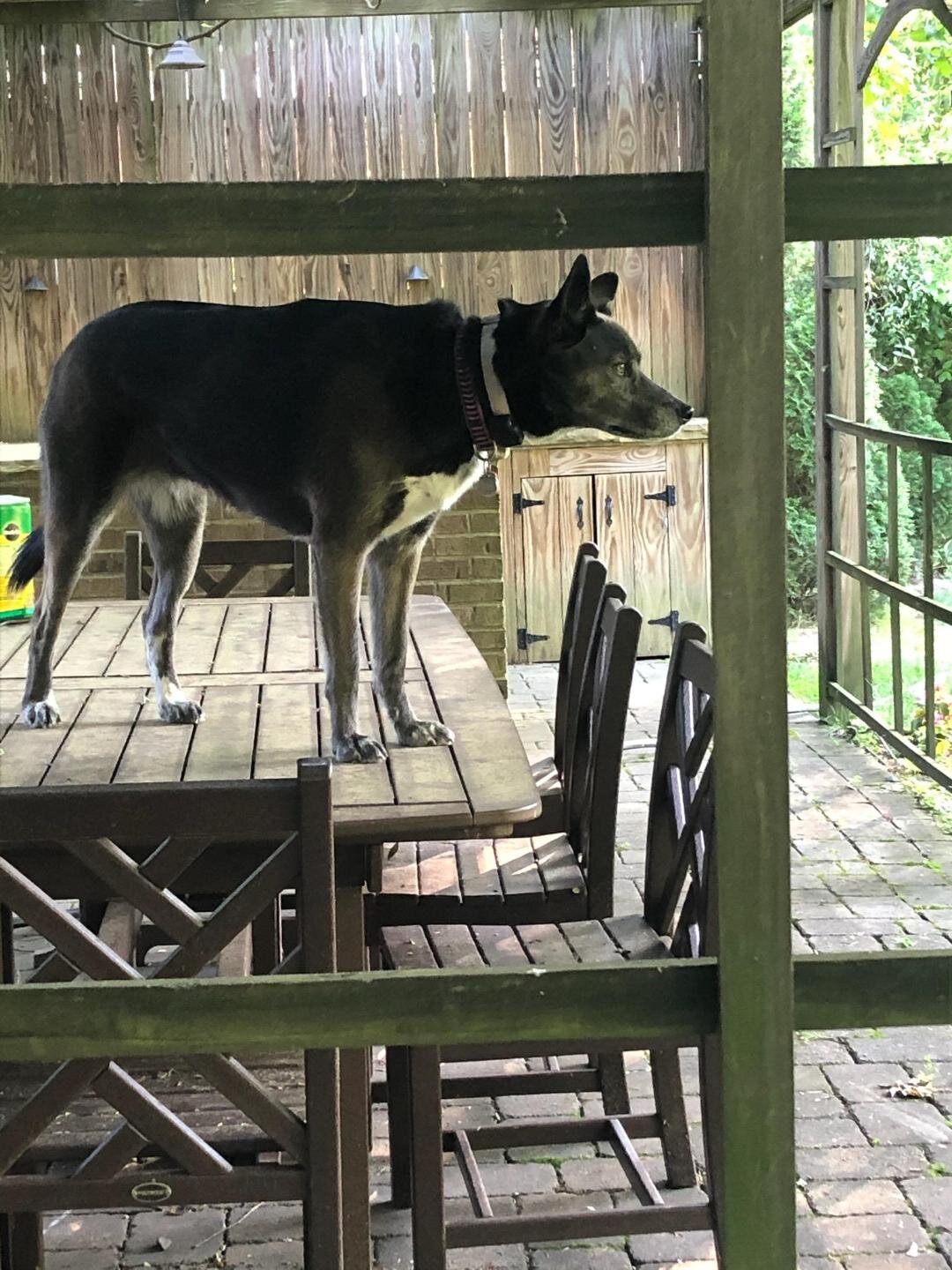Everyone has to write a sad dog story at some point. This flash-fiction short won first place in the Writer Advice Flash 2020 contest. You can read it where it was originally published with the below link, or continue reading below (where I’ve fixed a typo and deleted an extra comment that was left in).
The Dog Dies
“Sit,” I said. No response — but he was deaf. “Buckley,” I said. “Sit.”
He sat, narrating his efforts with an accomplished huff. Stiff hips, you know, he seemed to say.
I raised the gun, looking down at him through the sight. He blinked slowly back at me with the mild interest that comes with age. How close was I supposed to be? I took a step forward, then back, testing the feel of it.
The gun was Jodi’s father’s. He’d let me pick it from his collection earlier that night, before dinner. We’d gone back to his study together, just the two of us — a dim room with heavy furniture.
“That one?” he’d said, when I’d picked the gun I now held. He had said it somewhat incredulously. “Not the shotgun?”
I had not wanted to admit that I had picked at random. “I’m more comfortable with a handgun,” I’d said. He looked at me long and hard, and at first I’d worried it was out of suspicion.
“I can’t tell you what this means to us,” he’d finally said. “Jodi picked a good man.”
I had felt such a thrill at that. I was, I thought. A good man. For doing this. I hid my pride behind my most somber nod. “Thank you, sir,” I’d said. But I’d ridden his regard all through dinner. I’d ridden it through Buck’s last hamburger, through the long walk by the pond, through Jodi’s tears. I’d ridden it all the way out here to the backyard with a shovel in hand.
I took a breath. Buck snuffled vaguely at the end of the gun as I lined it up — though I doubted he could see through the white glaze of his cataracts. This was for the best, I tried to tell him with a final scratch under his warty, scraggly chin. Cancer would be a slow, mean road to walk for a dog of his stature.
I pulled the trigger.
And then, suddenly, he was on his side in the dirt, and I was falling to my knees — because he was still panting, his breath strained and coming out in soft, disbelieving whines. “I’m so sorry! I’m so sorry!” I said to him. Part of his forehead along his brow was grisly and half-gone. Had I looked away at the noise? Moved with the kick? I fumbled with the gun, readying it again, resting it right against his temple. His forehead was slick. I felt like I might be sick.
But a second shot would echo. They would hear.
I fidgeted at the thought. He keened softly yet again. I lowered the gun.
“I’m sorry, I’m so sorry,” I insisted, choking back tears and rubbing his neck in slow circles. “Just a moment more.” He bled fast, and they didn’t need to know that I had let him suffer.
I waited there with him as long as I could stand, but I could not stand it long. The grave. I began digging instead. He quieted as I did, his paws twitching, like he was dreaming of running. I hoped so dearly that he was. I dug faster, as if it would speed him along.
But he was still not gone when I was finished. He was calm, taking big breaths now. Blinking.
I could not hold back the panicked tears. How long had I dug? A quarter hour? A half? A second shot after moments was one thing. But now? I sat by him and held him as I cried, sniffling, and snotty. His fur beneath my hands was soft and warm.
I didn’t know what to do.
So, I put him in the grave and I covered him in dirt. His belly still rose and fell under the clumps of soil as I did it, the effort growing heavier as I added to the pile. His eyes rolled around to watch me, and his gaze was unwavering until I finally buried his face.
When I went back to the house, all they knew of me was that my eyes were red. They noticed, I think, because her mother’s voice cracked when she thanked me, and Jodi held my hand and put her head on my shoulder for the ride home.
“You always take care of me,” she’d said.
(Many thanks to Elisa’s mom, for the use of her image on this story. Elisa the dog is alive and well.)
